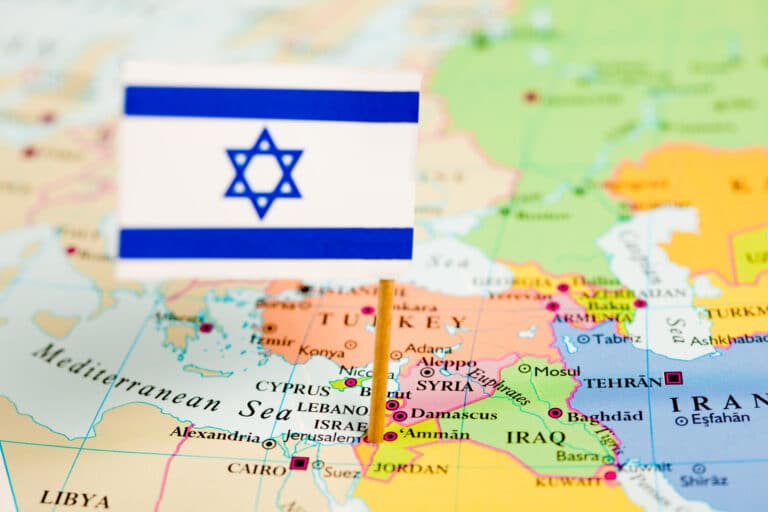
“I believe Israel has the right to exist,” I said rather naively.
The tone of the bar notably changed. It wasn’t hostile but it wasn’t as friendly as it was just a moment ago. Through the dingy darkness I could feel the eyerolls and stares pointed in my direction.
The over the top, chatty bartender immediately turned cold and distant.
“Ohhhhh you believe that Israel has the right to exist?” he replied back from across the bar, his tone dripping with sass. “Good… for… you,” he added, slowly emphasizing each word before turning his back to me.
I was confused.
Here I was sitting in a Jerusalem dive bar and I was pretty sure that I had just said the right thing (I mean that answer was my staple go-to response back in the States when it came to the “Israel question.”)
Somehow I clearly missed the mark.
I had just spent nearly 6 months living on a kibbutz working as a cook. I was feeling pretty confident and cocky in my comfortableness in Israel, after all I had just spent nearly half a year working in a massive kosher kitchen getting lovingly shouted at in Hebrew, Arabic, Russian and English. I had mastered the bus schedules, been through a few Red Alerts, and even attempted dating. I had hit my stride and there was no stopping me.
That confidence, however, was rightfully shattered on my last night in the country at that dimly lit bar in Jerusalem.
I came to Israel for the first time later in life at the age of 34. Hanging around JCCs I always heard of the “Jewish cowboy” dream and I now had the time to give to it– it was my turn to pick Jaffa oranges and follow in the footsteps of Jerry Seinfeld, Sacha Baron Cohen, Noam Chomsky, Bernie Sanders… David Ben-Gurion, Golda Meir and Ehud Barak (turns out I would land at his kibbutz by chance).
My kibbutz outside of Netanya was a cross-section of Israel and the food we cooked represented that. We made cholent and tagine, stuffed grape leaves and Waldorf salad, brisket and Moroccan cigars. Mayonnaise and tehina had equal standing. Our dining options, like our customers, spanned the palates of Ashkenazi, Sephardic, Mizrahi and Middle Eastern.
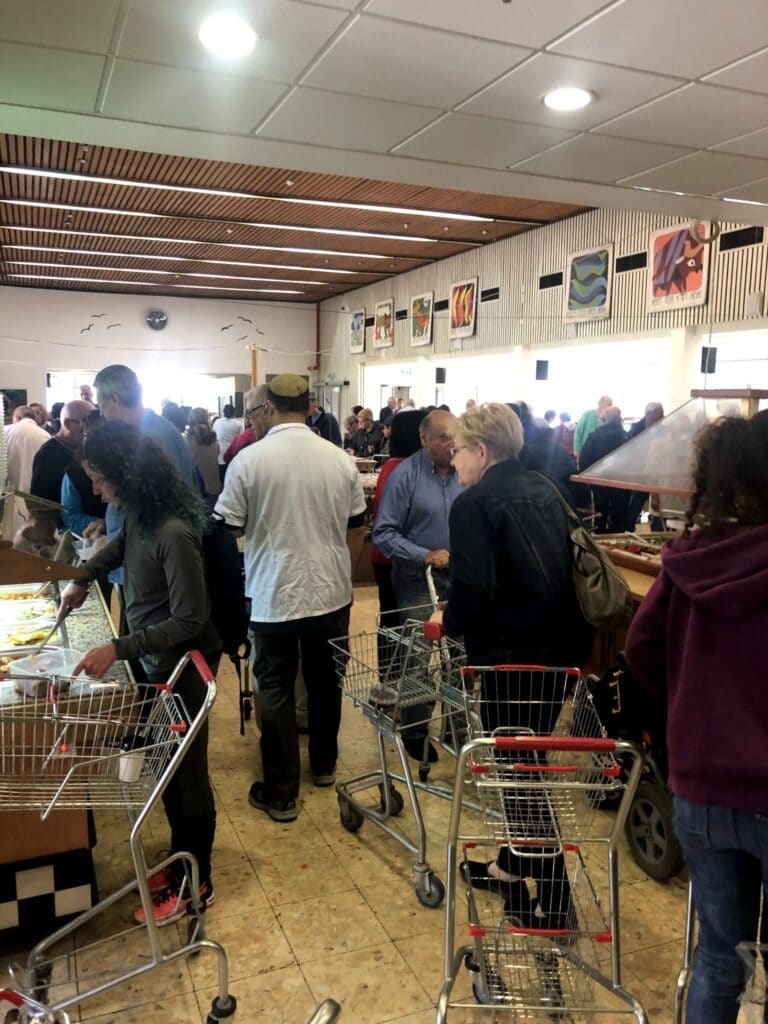
And because of that, I learned on the fly how to navigate working with the multiple cultural differences. Israel may be 75% Jewish but broken down it’s a nation of many ethnicities from all over the world working and living right on top of each other.
Our mashgiach, kosher supervisor, was the first Haredi person I ever interacted with on a daily basis. In between inspecting our coffee cups for any milk (and working the deep frier making schnitzel) he would bond with me in broken Hebrew and English about Crown Heights, my soon-to-be neighborhood in Brooklyn.
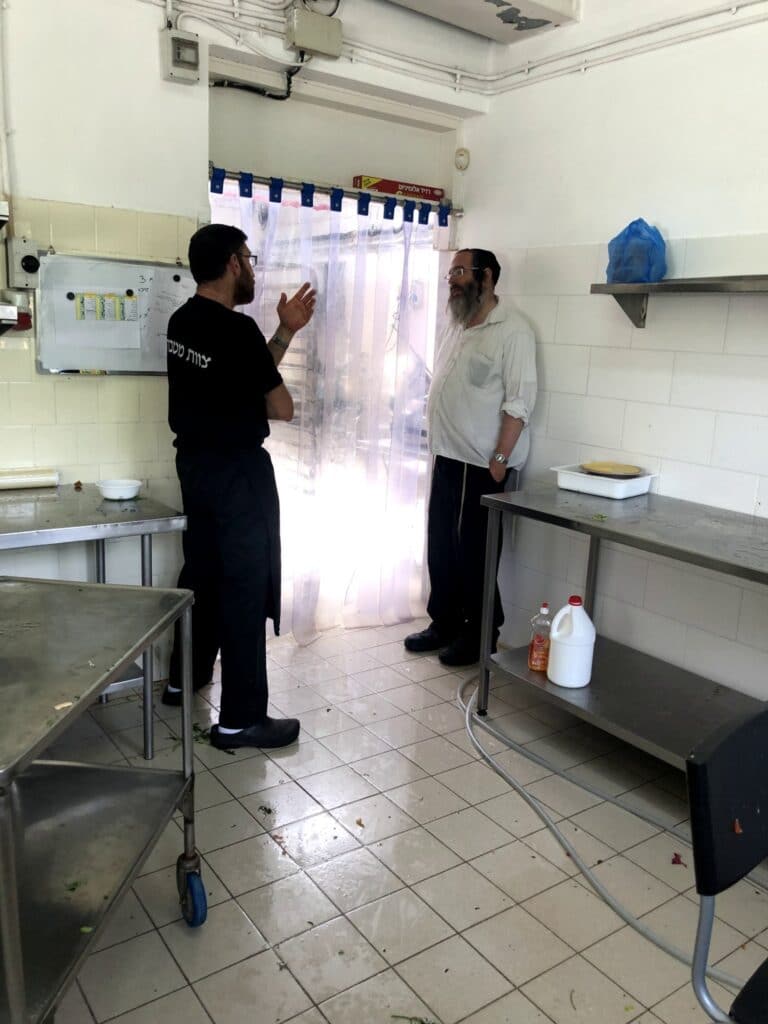
One hotter than normal spring day I offered up some freshly chopped watermelon to one of the kitchen managers who was busy stocking the day’s deliveries. A tough job under normal circumstances.
“Ramadan… no I’m fasting,” he said with a smile and went back to his job.
“So no food?” I replied back.
“Not even water,” he said.
I learned how to swap odd jobs with the line cooks, Israeli Arabs, trading shifts on the dishwashing machine for extra downtime when things got too out of hand and there was one too many beets to peel before the end of the day. They helped me with my Arabic and Hebrew (both official languages in Israel) and I would text for them in English to past volunteers on the kibbutz.
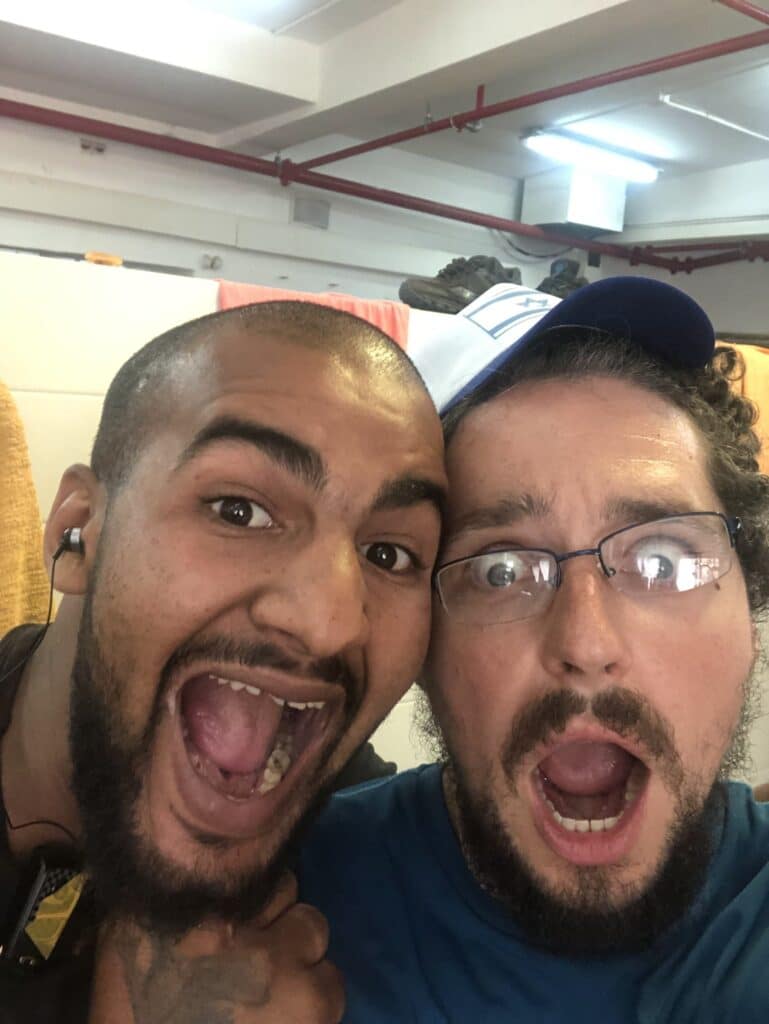
Eventually I learned how to break through the sabra mentality of the chefs, realizing that underneath their gruff exterior was a bunch of romantic softies interested in sharing stories about their cooking adventures across the country and around the world. I learned that despite being a nation of immigrants, nearly 3 out of 4 Israelis were native born and were either second or third generation.
I eventually worked up enough confidence to take one for the team, volunteering to go out to the dining room to greet hungry tour groups knowing full well that I was about to head into the lion’s den, hearing over and over again: “You need to learn Ivrit” from the older diners, mostly first generation retirees. They weren’t wrong. As they say, the customer is always right. I was there visiting them, it was the least that I could do.
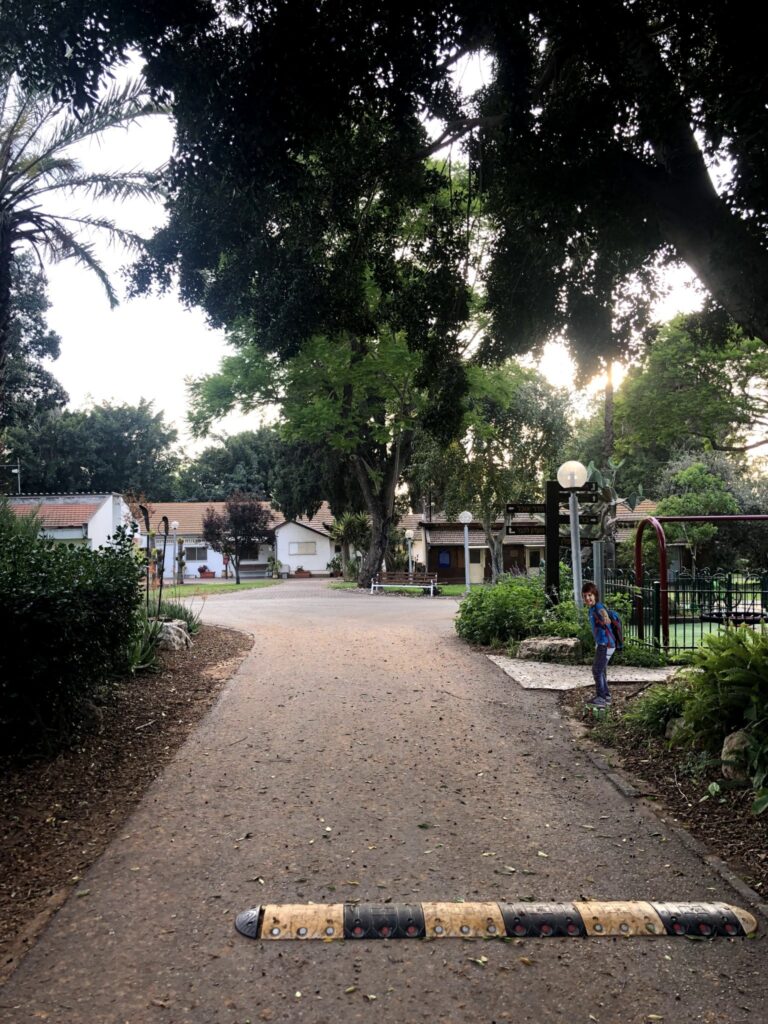
The kibbutz kitchen was a microcosm of day-to-day life in Israel, much like the patrons at the bar in Jerusalem the night I opened up my mouth. It was life beyond the headlines. More importantly, it was life beyond the repeated storylines that I was so used to hearing in the Diaspora. Those narratives did not prepare me for the “real Israel,” that Israel was only discoverable after going there and experiencing it firsthand.
I am a product of the Diaspora. Being a younger Jew from the United States I was very much in tune with the debates and passionate conversations on Zionism and the growing gap in belief between young and old.
“Younger Jews – as a whole – are less attached to Israel than their older counterparts,” Pew Research Center concluded in their 2021 survey of the American Jewish community. “Two-thirds of Jews ages 65 and older say that they are very or somewhat emotionally attached to Israel, compared with 48% of those ages 18 to 29.” (In the circles I ran in, that number was probably even lower.)
That night at the bar ended sooner than I expected. I quietly settled my tab after finishing my drink and took a much needed walk with my tail between my legs.
It dawned on me shortly after leaving why my words were so naive. It was there in plain sight as I navigated the streets of central Jerusalem watching the people walk by.
I was still that American guy treating Israel like I would back home in the United States. My Zionism rather embarrassingly hadn’t evolved beyond Israel’s independence.
Saying Israel has a “right to exist” in the Diaspora worked because in several circles a statement such as this could be bold, radical, controversial… supportive, but saying it in Israel I became just another American yutz who didn’t know how backwards these words could be.
A lot of time has passed since 1948, two to three generations of people worth, but back home in the States I was still stuck frozen in time, toeing a strange line with others in the Diaspora. To put it plainly, I learned that night that Israel exists and debating its right to exist was antiquated, unproductive and not based in reality. I needed to move forward, not back.
Writer Anshel Pfeffer summed this up in a uniquely Israeli way, writing in Haaretz in 2019:
“Despite the -ism in its name, Zionism was never an ideology, it was a program. For the 66 years of its existence there were heated debates over Zionism’s justification, objectives and the best means for achieving them. They ended on May 14, 1948, when an independent Jewish state was established on part of the ancient homeland.”
This belief played out for me in real time that night. I was virtue signaling and I didn’t even know it.
In Pfeffer’s words: “The only way you can abandon Zionism is if you are at least 85 and were politically active when Zionism was still relevant.”
The argument over existence is over, saying “I believe Israel has a right to exist” locks us in a debate already litigated and fought for– it only holds us back from achieving our true potential. We may not be post-Zionism just yet (I’ll let other people debate the merits), but we are most definitely past the “right to exist stage.”
My Zionism desperately needed to evolve to reflect the realistic situation on the ground; because, embarrassingly, one of the biggest misconceptions that I had about Israel before visiting was not expecting to see such a robust and fully developed country. I am ashamed to admit this but you almost couldn’t have blamed me for thinking this. The way people reacted after hearing I was leaving for Israel, the “otherness” people gave it, you would have thought that I was heading off into an untamed wild and exotic unknown land. I didn’t know what to expect when I landed due to the swirling narratives I was surrounded by, but I thought I was going to land right in the middle of a nation just starting out, fighting for its existence and still trying to figure out what it was.
I was wrong.
Theodor Herzl once said, “If you will it, it is no dream; and if you do not will it, a dream it is and a dream it will stay.”
My Zionism was stuck there. I was still at the start of the “willing it” chapter of Israel’s history. I was still caught up in the miracle and dream.
It’s time to start chasing other Israeli dreams and work on willing them into miracles.
Originally Published Jun 21, 2022 12:02AM EDT
